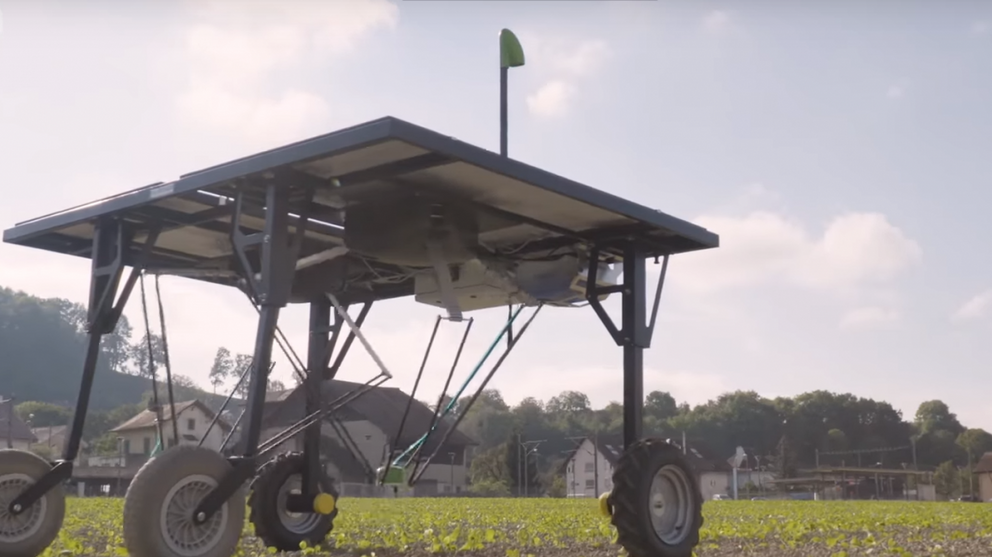Weed-killing robots are threatening giant chemical companies’ business models
AI-powered weed hunters could soon reduce the need for herbicides and genetically modified crops.
How it’s done now: Current farming methods involve spraying large amounts of indiscriminate weed killer over fields full of crops that have been genetically tweaked (usually by the same company that makes the weed killer) to resist the chemicals. The pesticide and seed industry is enormous, worth $100 billion globally. Of that, herbicide sales alone account for $26 billion.

The future: Robots like the one created by ecoRobotix (shown above) will be able to roll through fields, using computer vision to target and spray individual weeds as they go. EcoRobotix claims its robo-brigade will decrease total herbicide use by a factor of 20. You might even be able to get a smaller Roomba-esque version for your home garden.
The industry impact: The use of these weed killers isn’t far off. John Deere got in on the tech last year, acquiring the precision spraying startup Blue River, meaning its tractors could be outfitted with weed targeters very soon. Large agrochemical companies are desperately trying to acquire businesses working on similar technologies, in preparation for a decline in demand for their chemicals.

